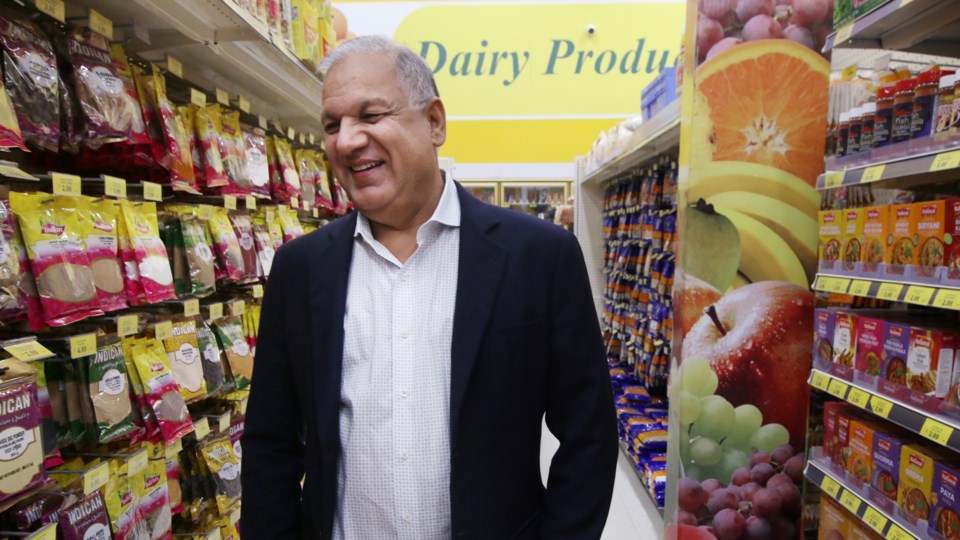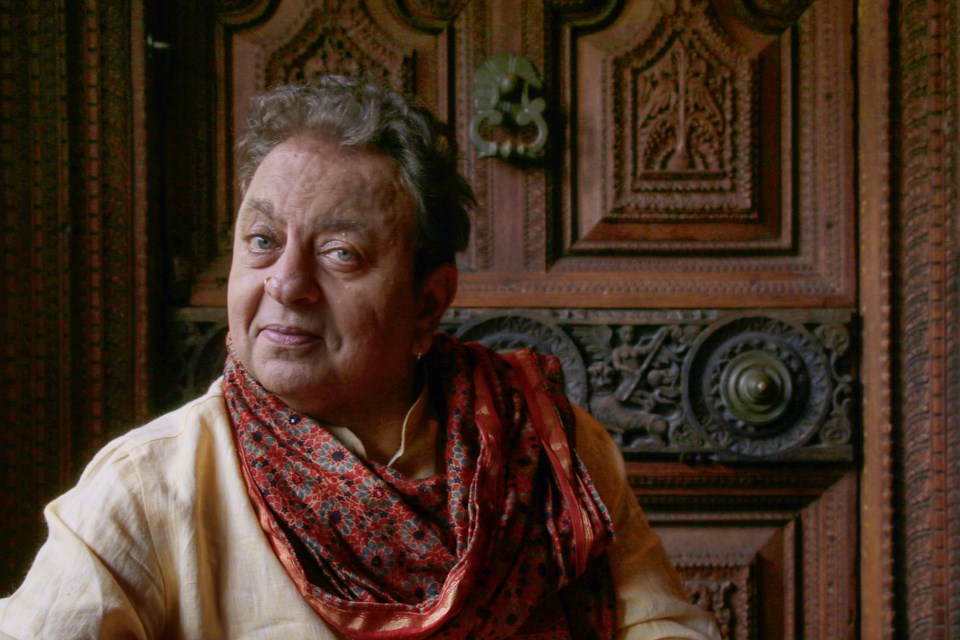sa���ʴ�ý’s economy is unlikely to be hit too badly by the increasingly sour relationship sa���ʴ�ý has with the Indian government.
The deterioration of relations is, however, an emotional gut-punch for many in the province’s Indo-Canadian community.
Some sa���ʴ�ý business owners rely on trade with India, with their companies exporting products such as lumber, or importing foods and other products to resell.
Others own restaurants that are destinations for some Indian visitors when they come to sa���ʴ�ý
The consensus is that business will continue uninterrupted, despite sa���ʴ�ý on Oct.14 announcing that it was expelling six Indian diplomats and consular officials because they were involved in a targeted campaign against Canadians.
No trade sanctions have yet been imposed by either side.
Prime Minister Justin Trudeau told media that India refused to co-operate with criminal investigations into the alleged involvement of Indian government agents in violence and coercion on Canadian soil.
India retaliated by expelling six Canadian diplomats.
These developments followed a spat last year, when sa���ʴ�ý alleged that agents of the Indian government were linked to the assassination in Surrey of Hardeep Singh Nijjar, a Sikh activist and advocate for an independent Khalistan state.
BC Stats data shows sa���ʴ�ý-origin exports to India totalled $1.406 billion in 2023, down 10.6 per cent from the year before.
Steel-making coal was the top export, worth $1.057 billion.
Free-trade talks on hold
The Canadian and Indian governments for more than a decade had been negotiating a free-trade agreement to help both economies. Those talks are now shelved, and any work done so far is likely to gather dust for years to come.
sa���ʴ�ý-based business executives tend to like the idea of sa���ʴ�ý having free trade with India but told BIV that free-trade talks were stalled before diplomatic tensions ratcheted up.
“We were getting nowhere on the free-trade agreement,” Sundher Group CEO Tom Sundher told BIV.
“There was no incentive.”
Sundher’s Surrey-based company generates about $50 million in annual sales, including around $5 million from selling various measurements of softwood lumber to Indian customers for furniture and frames for windows and doors, he said.
His company, which has an office in India, also acts as an agent in helping Weyerhaeuser Co. (NYSE:WY) export raw logs to India, he added.
None of Sundher’s clients have changed their orders because of diplomatic tensions, he stressed.
His softwood exports to India started in 1998, when India imposed a 32.5-per-cent tariff on his products. The tariff rate on his exports to India has fallen to 14.5 per cent despite there being no free-trade pact, he said.
India’s tariff on raw-log imports tends to be about five-per-cent, Sundher said.
Many of his clients like that the tariff on softwood lumber is higher than that for raw logs because they import raw logs and make lumber products from those logs to resell, he explained.
“They’re saying to their government officials that [the tariff structure] creates jobs in India when they buy logs because they get to make lumber from the logs,” he said. “When we send lumber, it’s all finished lumber, and it goes directly into the end products.”
Sundher said he has advocated for a free-trade agreement for years but he doubts one will soon materialize.
Tony Singh is another Surrey-based Indo-Canadian business leader who would love to see a sa���ʴ�ý-India free-trade agreement, but he said he is managing well without one.
He owns and is president of the 24-location grocery-store chain Fruiticana, which specializes in Indian, Pakistani and Bangladeshi products.

“Free trade would help to speed up products crossing the borders,” he told BIV.
“A lot of food does not have a tariff on it. Tariffs are only on the products that we grow in sa���ʴ�ý.”
Packaged foods such as jars or packages of curry sauce do not have tariffs, he said.
Business is strong enough at Fruiticana that Singh said he is scouting locations in downtown Vancouver for where to open his 25th location.
Potential visa suspensions, travel disruptions loom
The recent escalation in diplomatic tensions has prompted Indo-Canadian community members to fear a reprise of what happened last year, when India suspended visa processing for Canadians for the two months between Sept. 21 and Nov. 22.
“Many people were affected,” Maninder Gill, owner of the Surrey media outlet Radio India, told BIV.
“People had bought plane tickets, and some airlines did not refund their money when they could not go.”
Sundher told BIV that he and his son, vice-president Dave Sundher, each have paid for 10-year business visas that allow multiple entries into India.
As such, they do not need to fear India cutting off visa processing.
While most community members get cheaper single-entry visas for each trip, Sundher said business executives who make frequent trips get value out of 10-year visas.
Air India continues to fly what the Vancouver Airport Authority said are daily non-stop flights between Delhi and Vancouver on planes configured to seat 342 passengers.
Air India started flying non-stop between Delhi and Vancouver twice per week in August 2020. It bumped that up to three times per week in October 2021, and to daily in September 2022.
Air sa���ʴ�ý (TSX:AC) first launched non-stop Delhi-Vancouver flights in 2016, three times per week. Those were the first non-stop commercial flights between Vancouver and India that any airline had ever offered.
Air sa���ʴ�ý stopped operating those flights during the pandemic, and then resumed flying them between September 2020 and May 2021. It took a pause and restarted the flights in September 2021. When Russia invaded Ukraine in February 2022, Air sa���ʴ�ý had to alter that route’s flight path so as not to fly over Russian territory.
To efficiently and profitably fly the Delhi-Vancouver route, airlines need to fly over Russian territory, said John Korenic, a University of British Columbia Sauder School of Business adjunct professor in aviation.
That’s why Air sa���ʴ�ý temporarily flew the route with a stopover in Dublin, before axing it in March 2022.
India maintains relations with Russia, which is why its national airline is able to fly over Russian airspace.
Destination British Columbia data shows India as the sixth-largest source of visitors to sa���ʴ�ý through sa���ʴ�ý entry points in the first eight months of this year, with 95,710 visitors.
That is up 9.9 per cent from the same time period last year, but down 1.1 per cent, compared to the same time period in 2019, before the COVID-19 pandemic.
Nations with more overnight visitors to sa���ʴ�ý through sa���ʴ�ý entry points in the first eight months of 2024 include the U.S. (2,566,050), the U.K. (151,991), Australia (151,506), Mexico (119,641) and China (112,405).
Vij’s Restaurant owner Vikram Vij told BIV that some visitors from India come to his Vancouver eatery, which is ranked as a Michelin Bib Gourmand restaurant.
Fewer visitors therefore could translate into less business, but that is not what troubles him about the nations’ diplomatic spat.
“I get emotional about it,” he said. “It saddens me to see that the country of my birth and the country where I live are at odds with each other on political issues.”
He said the political situation could deter some potential international students from coming to sa���ʴ�ý.
That combined with a new federal government cap on international students this year (485,000 for all study permits, including master’s and PhD students) and an approximate 10-per-cent cut to that number next year will mean fewer Indian international students who Vij is able to hire to work at his restaurant.
“The students from India are the ones who know about Indian food,” Vij said. “It’s difficult to bring in a Japanese student to work in an Indian kitchen.”
According to a National Foundation for American Policy study, Indian enrolment in Canadian universities skyrocketed 5,811 per cent between 2000 and 2021: to 128,928 from 2,181 students.
Some advocates for stronger sa���ʴ�ý-India business relations are looking on the bright side.
“It’s not a war,” BC-India Business Network founder and president emeritus Vivek Savkur told BIV.
“It is only at a war of words, although I must tell you it is diplomacy at its lowest.”


